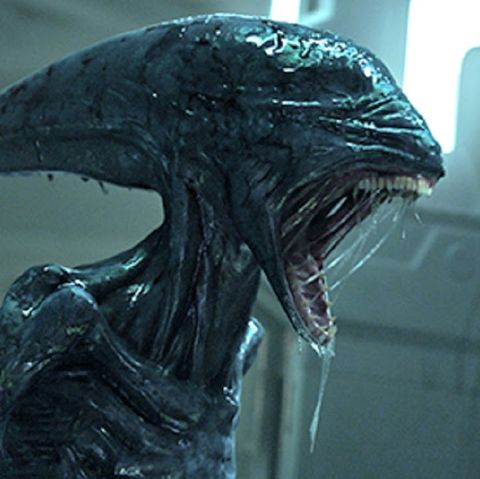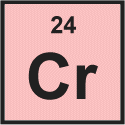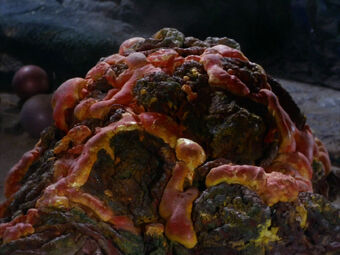In September of 2007, I started this blog
with a bit of writing advice. A little over a year later, I discovered how little
I knew about writing after hearing children’s writer, In April of 2014, I
figured I’d gotten enough publications that I could share some of the things I
did “right”. I’ll keep that up, but I’m running out of pro-published stories. I
don’t write full-time, nor do I make enough money with my writing to live off
of it, but someone pays for and publishes ten percent of what I write. Hemingway’s
quote above will remain unchanged as I work to increase my writing output and
sales, but I’m adding this new series of posts because I want to carefully look
at what I’ve done WRONG and see if I can fix it. As always, your comments are
welcome!
ANALOG Tag Line:
A blue-blood royal has her brain transplanted into a genetically
“impure” body to spark change on a world. (SF twist on PRINCE AND THE PAUPER)
Elevator Pitch (What Did I Think I Was Trying To Say?):
The world RIVER is sharply divided, but in the clouds of a puffy Jupiter,
there should be enough room for divergent philosophies. Usually it is, but as
the populations who came from the Empire of Man, in which your Humanity is
judged by the percentage of your DNA aligned with the 20th Century
data of the Human Genome Project; and the Confluence of Humanity, in which uninhibited
genetic engineering allows society to design Humans to fit virtually any
environment for any conceivable purpose. What if one of the Imperial Family
wants to change things? What if they have their Pure brain transplanted into a
highly engineered body?
Opening Line:
“The shoulders of
the passenger in the center seat had been gray-taped to the back of the
chair and the tape wound down his torso.”
Onward:
“Wrists, knees and
ankles had also been taped firmly to the seat and the chair’s pedestal. Around
him, ten passengers dozed with heads thrown back or chins on chests, soft
snores muttering in the warm air, loud snores disturbing those nearby
occasionally.
None of them were
taped in place.
“The cargo
zeppelin’s gondola swayed, orange sunset light painting slow strokes on the
deck around them. The pilot, virtual control panels floating around her where
she hung from a ceiling harness, slipped out of it and dropped to the deck.
Padding to her prisoner, she leaned over and whispered, ‘Gordon, wake up.’
“Gordon Oyeyemi started
awake, dark skin stroked for an instant by a scarlet glow. ‘What do you want?’”
What Was I Trying
To Say?
I was TRYING to
recreate a science fiction version of THE PRINCE AND THE PAUPER in the skies of
a world I’ve created called River. It’s a puffy Jupiter where Imperials and
Confluans inhabit different bands of clouds decided by war and treaty. I wanted
to say that “we’re all Human”…
The Rest of the
Story:
Gordon and Anibal,
after quipping back and forth, drop off passengers at the interface between a
calm Band and cloud Belt (east blowing) or Zone (blows west) and after meeting
Gordon’s boss (and genetically engineering master), the head for the Depths of
the planet, encountering a Confluan engineered from Gordon into a kilometer-wide,
intelligent ambulance ship – a hūmbūlance. Gordon didn’t know anything about
Irog, though Irog knows all about him (which of course, introduces another
entire story line into an already complex story). They descend into the “Deaths”
and find that the princess was not only kidnapped, but has also had radical
surgery to place her Pure Human brain into a Confluan body designed to flourish
in the conditions of the Depths. They rescue her…without taking any precautions
to see if she’ll even survive in Heaven (the cloud miner’s name for the thin,
Human normal air pressure of the inhabited Belts and Zones of the planet…)
End Analysis:
What I was trying to
say, “we’re all Human” isn’t clearly stated at the beginning of the story. It’s
not even EVER stated.
In fact, while I
know the story of Mark Twain’s novel, THE PRINCE AND THE PAUPER, I don’t know
that I’ve ever actually read it. Not to get a grade anyway. Because if I HAD
read it and studied it, I would have discovered what Twain was trying to say:
“The introductory
quote — ‘The quality of mercy is . . . twice blest; / It blesseth him that
gives and him that takes: / 'Tis mightiest in the mightiest: it becomes / The
throned monarch better than his crown" — is part of ‘The Quality of
Mercy’ speech from Shakespeare’s “The
Merchant of Venice”.
“While written for
children, The Prince and the Pauper is both a critique of
social inequality and a criticism of judging others by their appearance. Twain
wrote of the book, ‘My idea is to afford a realizing sense of the exceeding
severity of the laws of that day by inflicting some of their penalties upon the
King himself and allowing him a chance to see the rest of them applied to
others...’”
Whoa. Talk about
relevance to today! While “Princess’” was a good story three years ago, it’s
even more relevant to today!
Can This Story Be
Saved?
Sure! But can I do
it? It appears to be an adventure story, but it remains solely that because I
didn’t lay out the main question right away, and it doesn’t appear to be anyone
else’s concern but the princess, and she doesn’t show up until the end.
I’ve started to
realize recently that my intended message often exceeds my skill as a writer.
Several stories whose IDEA is powerful were not executed effectively by me as a
writer. For example: “After Soft Rains, Daisies” is a case to point; another is
“May They Rest” where I use science fiction to address the abandoned graves of
Confederate soldiers I saw when I was with my son in North Carolina; and the
example above. Years ago, I wrote a story called “Noel”, about a girl born with
Down’s Syndrome whose mother decides to have a post-birth abortion. Noel’s
father kidnaps her and they end up hiding in a house…inhabited?...by an
artificial intelligence who is defying a county order to vacate in order to expand
a nearby park…I sent it out to a magazine and got a personal rejection noting
that the editor doubted that the law would ever devolve to such a point that
post-birth abortions would be sanctioned.
If I’m going to “change
the world”, I have to sharpen my skills. As well, I need to sharpen my faith.
Reading THIS PRESENT DARKNESS by Frank Peretti, I realized that while I’m NOT
going to be writing Christian Fiction, I can make my characters more Christian
than I have, and I need to. I need to allow Jesus to bleed into my writing the
way authors have written “secular” works that carry the Cross of Christ before
them. Tolkien, Lewis, Chesterton, Dorothy Sayers, Gene Wolfe, Madeleine L’Engle,
Kathy Tyers, and David Walton, to name a few.
At any rate, yes
this story can be saved. BUT – I need more practice at bringing important
issues into my stories.
After reading “The
Princess’ Brain” through to the end, I found it both muddled and futtering
around without a clear direction. That’s evident by the first sentence. In fact
the story doesn’t even (as I mentioned above) talk about the princess’
intentions until page 17. She doesn’t cross the stage until the end. While that
may not be a big problem because I’m dealing with the consequences of the
politics of River, I am using an invisible person as the motivation for the story.
The main character doesn’t even know what’s happening at first. The secondary “main”
does, but she’s not talking, which creates problems – but they’re unnecessary
problems. If two mains had been up front from the beginning, half of my “tension”
in the story would have vanished.
That seems to be a
problem I have with all of the stories I mentioned above; as well as with my
writing in general.
Note: “Possessive
forms: princess’s (main form used by academics) The princess’s golden hair.;
princess' (main form used by newspapers) The princess’ golden hair. A princess
is usually styled “Her Highness”.” https://en.wiktionary.org/wiki/princess







